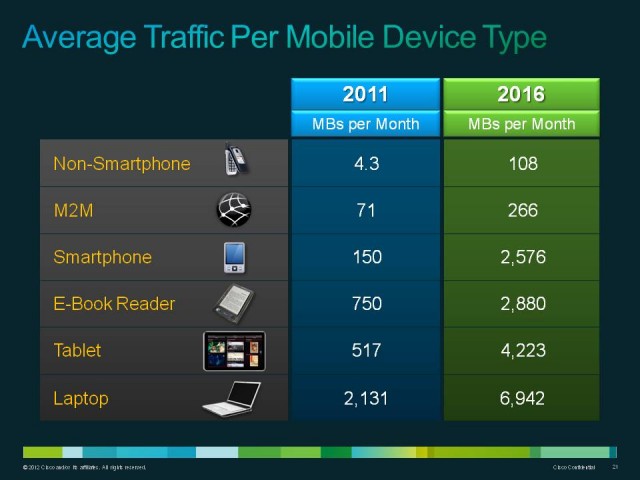
KFOR-TV in Oklahoma City captured this image of the destructive tornado that flattened parts of Moore, Okla.
Widespread cell phone outages and overcongested wireless networks are hampering efforts to find missing loved ones or call for help in areas hard-hit by this afternoon’s devastating tornado affecting Moore, Okla., a suburb of Oklahoma City. But in many areas escaping the worst of the storm, landline service is performing normally.
“We have no coverage and no signal from any cell phone provider in this part of Moore, despite the fact we escaped the tornado with no damage,” reports Susan Ramos, who was staying in Moore to deal with a family emergency. “We have borrowed a nearby neighbor’s home phone which is still working fine. My relatives back home in Texas have been worried sick not hearing from us that we are okay.”
One of the first victims of the tornado touchdown were communications towers, some damaged by the wind, others now missing a wired connection back to the network provider. Many of those still in service are overloaded with callers. Some cell towers are performing double or triple duty, handling calls from neighborhoods that would have been ordinarily served by other towers no longer functioning. The result is a cell network clogged with calls, making it next to impossible to reach storm-affected areas.
Some residents are traveling by foot or vehicle on debris-cluttered roadways looking for a cell tower that can still handle calls.
Oklahoma City media reports AT&T is asking residents to refrain from making or receiving wireless voice calls. Instead, the company is asking cell customers to only use text messaging until further notice.
Although landline infrastructure was also destroyed in and around the direct path of the tornado, adjacent areas still have service, including areas where cell phone service has failed.

“Finding pay phones in this area is not easy, and I don’t know Moore too well and many businesses closed down early after the storm, so we are grateful to a nearby neighbor we don’t even know who kept their phone service and let us use it.” Ramos added. “Now we know canceling our own wired home phone was probably a mistake after seeing what happens in emergencies.”
Cell phone providers are coordinating to transport portable cell towers into Moore and other affected areas within the next day or so if normal cell service cannot be quickly restored. But for residents desperate to communicate, the failure of the local cell phone network, either because of storm damage or insufficient capacity, has proved frustrating.
[flv width=”596″ height=”356″]http://www.phillipdampier.com/video/NBC News Moore Residents Cell Phone Service 5-20-13.flv[/flv]
NBC News talks with storm survivors frustrated by the lack of cell phone service in Moore, Okla. (2 minutes)


 Subscribe
Subscribe
 When Industry Canada announced it was planning to boost competition by setting aside certain spectrum for new competitors entering the wireless marketplace, the Conservative government promised Canadians they would see a new era of robust competition and lower prices as a result.
When Industry Canada announced it was planning to boost competition by setting aside certain spectrum for new competitors entering the wireless marketplace, the Conservative government promised Canadians they would see a new era of robust competition and lower prices as a result.




 CenturyLink’s massive nationwide broadband service outage on May 7 hurt Florida schools trying to administer online testing, small businesses in Nevada that were forced to close for the day, and frustrated nearly six million customers across both states and in Arkansas, Missouri, Louisiana, Texas, Kansas, Minnesota, Ohio, Wisconsin, Pennsylvania, Colorado, Washington, Virginia, Michigan, Montana, Oregon, Tennessee, and Illinois.
CenturyLink’s massive nationwide broadband service outage on May 7 hurt Florida schools trying to administer online testing, small businesses in Nevada that were forced to close for the day, and frustrated nearly six million customers across both states and in Arkansas, Missouri, Louisiana, Texas, Kansas, Minnesota, Ohio, Wisconsin, Pennsylvania, Colorado, Washington, Virginia, Michigan, Montana, Oregon, Tennessee, and Illinois.
